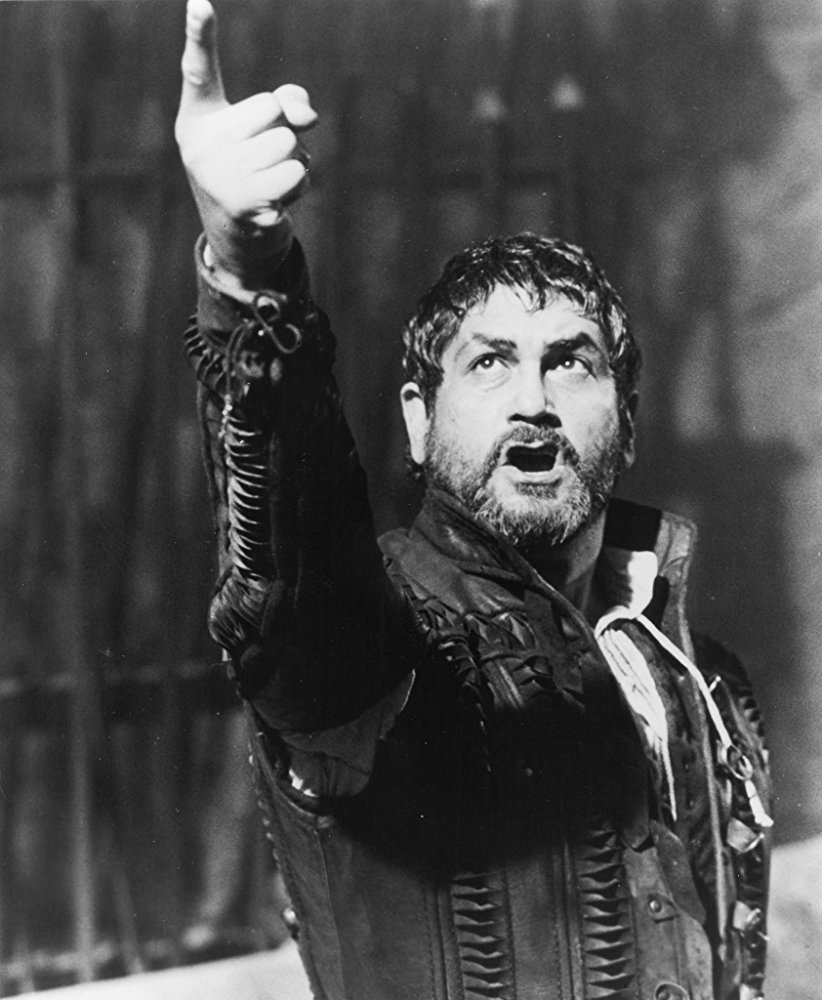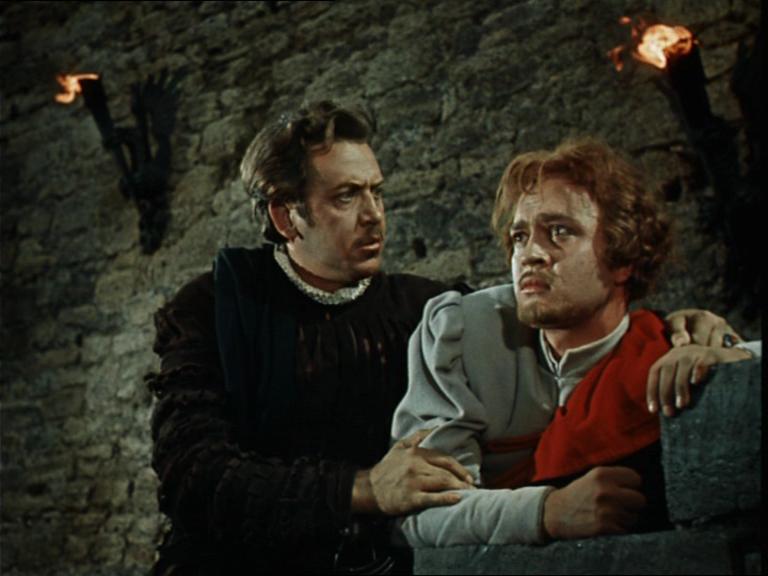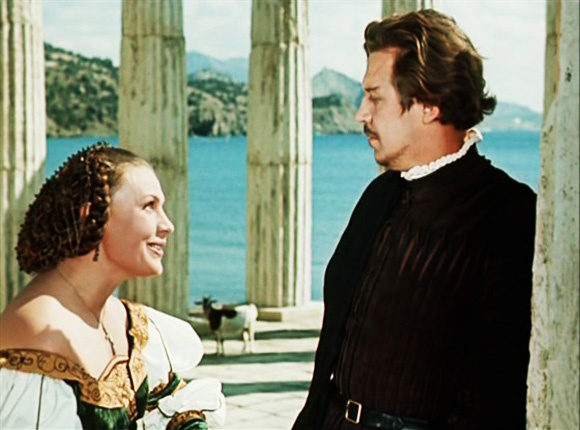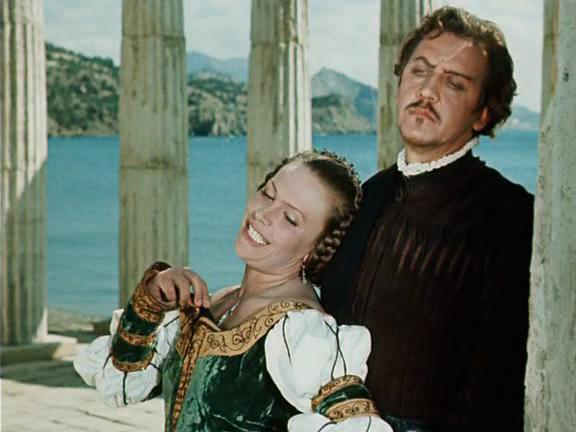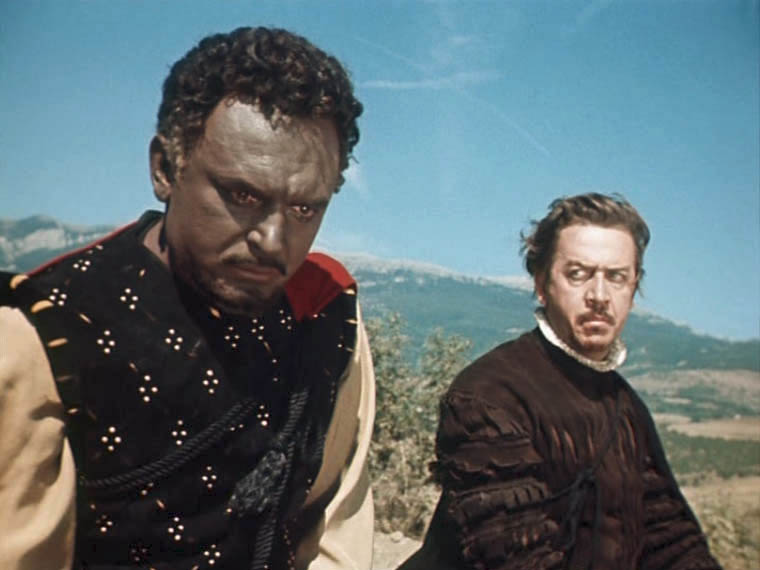Iago is one of Shakespeare's most sinister villains, often considered such because of the unique trust that Othello places in him, which he betrays while maintaining his reputation of honesty and dedication. Shakespeare contrasts Iago with Othello's nobility and integrity. At 1097 lines, he speaks more lines in the play than Othello, more...
Show more »
Iago is one of Shakespeare's most sinister villains, often considered such because of the unique trust that Othello places in him, which he betrays while maintaining his reputation of honesty and dedication. Shakespeare contrasts Iago with Othello's nobility and integrity. At 1097 lines, he speaks more lines in the play than Othello, more than any other non-title characters in Shakespeare (with the arguable exception of Falstaff, if his lines from both the first and second halves of Henry IV are combined). Iago is often referred to as honest Iago, displaying his skill at deceiving other characters so that not only do they not suspect him, but they count on him as the person most likely to be truthful.Iago fits into the malcontent character type because of his bitter and cynical view of the world around him.Iago is General Othello's most trusted advisor. At the beginning of the play, Iago claims to have been unfairly passed over for promotion to the rank of Othello's lieutenant in favour of Michael Cassio. Iago plots to make Othello demote Cassio, and thereafter to bring about the downfall of Othello himself. After Iago engineers a drunken brawl to ensure Cassios demotion (in Act 2), he sets to work on his second scheme: leading Othello to believe that his wife, Desdemona, is having an affair with Cassio. This plan occupies the final three acts of the play.In the final scene, Iago's plan appears to succeed when Othello kills Desdemona, who is innocent of Iago's charges. Soon afterwards, however, Iago's treachery is brought to light by his wife, Emilia; Iago is placed under arrest. He remains famously reticent when pressed for an explanation of his malicious conduct.These are his final lines before being taken away for torture and presumably execution:Demand me nothing. What you know, you know. From this time forth I never will speak wordIago is generally regarded as one of Shakepeare's most malevolent creations. A. C. Bradley, a renowned critic of Shakepeare, claimed that evil has nowhere else been portrayed with such mastery as in the evil character of Iago. [1] In particular, the mystery surrounding Iago's actual motives has continued to intrigue readers and fuel scholarly debate.Iago has been described as a motiveless malignity by Samuel Taylor Coleridge. This reading would seem to suggest that Iago, much like Don John in Much Ado About Nothing or Aaron in Titus Andronicus , wreaks havoc on the other characters' lives for no ulterior purpose.Possible analyzed motives include:The greatest problem that Iago presents as a character is reconciling his malignant, manipulative behavior within the play, with the high regard that he has earned from Othello, Cassio, and others, who trust him implicitly (to their undoing). How a man as bitter, cynical and amoral as Iago could ever become so trusted is a mystery that the play never explains.Andy Serkis, who portrayed Iago in a London production, wrote in his memoir Gollum: How We Made Movie Magic, that: There are a million theories to Iago's motivations, but I believed that Iago was once a good soldier, a great man's man to have around, a bit of a laugh, who feels betrayed, gets jealous of his friend, wants to mess it up for him, enjoys causing him pain, makes a choice to channel all his creative energy into the destruction of this human being, and becomes completely addicted to the power he wields over him. I didn't want to play him as initially malevolent. He's not the devil. He's you or me feeling jealous and not being able to control our feelings. Iago only reveals his true nature in his soliloquies, and in occasional asides. Elsewhere, he is charismatic and friendly, and the advice he offers to both Cassio and Othello is superficially sound; as Iago himself remarks: 'And what's he then that says I play the Villain?' (II.iii.310) It is the dramatic irony, created by the audience's knowledge of his wicked intentions contrasted with the other characters' trust in him, that drives the play.
Show less «

